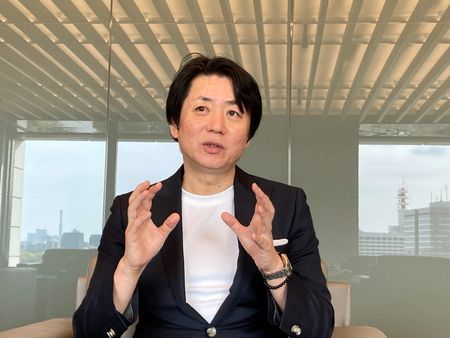By Makiko Yamazaki and Ritsuko Shimizu
TOKYO (Reuters) – Unsolicited takeovers will become common in Japan with time due to government efforts to de-stigmatise the practice, Dai-ichi Life’s CEO said after its success in clinching a $2 billion deal to acquire a company with an unexpected bid.
The life insurer bid for Benefit One in December despite the employee benefits provider having already agreed to a lower tender offer from digital health care information firm M3.
The move raised eyebrows in Japan, where unsolicited bids are still rare and because life insurers are considered among the most conservative of companies in the country’s conformist business culture.
“We decided to make the bid out of strategic necessity,” Chief Executive Tetsuya Kikuta told Reuters in an interview, saying the company needed to develop new businesses as demand for insurance stagnates due to Japan’s declining population.
“We had braced for more negative feedback to our move, but thankfully, we heard many positive comments from people in capital markets.”
Though the bid was unsolicited, Dai-ichi Life did stipulate that it would proceed with its offer only if Benefit One and its parent company Pasona agreed to the terms, underscoring still deep reluctance among Japanese companies to wage hostile takeovers.
Reputational issues associated with unsolicited bids were discussed by Dai-ichi Life’s board, but the government’s new takeover guidelines helped make the decision easier, Kikuta said.
The Ministry of Economy, Trade and Industry last year released M&A guidelines aimed at cracking down on excessive defence tactics and encouraging takeovers, removing a long-held stigma around unsolicited bids.
Executives at banks also say they are no longer hesitant to finance or advise a hostile acquirer.
When asked if Dai-ichi Life could launch another unsolicited bid, Kikuta said he didn’t know but added: “I believe such deals will become more common as time goes by.”
An increase in unsolicited offers will likely push up deal valuations in Japan as suitors for target companies would have to bear in mind the possibility of counter bids, he said.
(Reporting by Makiko Yamazaki and Ritsuko Shimizu; Editing by Edwina Gibbs)





